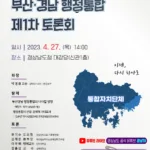The South Korean semiconductor industry is increasingly concerned about the potential fallout from the escalating US-China semiconductor dispute. As the industry grapples with production cuts and falling prices, it now finds itself stuck in the middle of a geopolitical tug-of-war.
According to recent reports, the US government has requested that South Korea refrain from exporting semiconductor replacement products to China ahead of the US-South Korea summit. In response, Chinese state-run media have criticized South Korea, stating that the country has become a “consumable” for the US. This situation has left South Korean semiconductor companies in a difficult position.
The ongoing tensions between the US and China have led to recent security reviews of Micron, a US memory semiconductor company, by Chinese authorities. Industry insiders interpret these reviews as retaliatory measures in response to the US-China dispute.
Memory semiconductors are often generic products, meaning that if sales of Micron products are banned as a result of the security reviews, competing companies such as Samsung Electronics and SK Hynix could potentially fill the gap in product supply. However, it appears that the US is pressuring South Korean semiconductor firms to prevent China from sanctioning Micron.
This geopolitical conflict adds another layer of complexity to the South Korean semiconductor industry’s struggles. As previously reported, the industry has been dealing with falling trade indices, decreasing DRAM and NAND flash prices, and high inventory levels. Companies have been implementing supply adjustments, including production cuts by Samsung Electronics, in an effort to stabilize the market and expedite its recovery.
Now, the South Korean semiconductor industry must navigate not only the challenges posed by market conditions but also the increasingly fraught geopolitical landscape. With the US and China exerting pressure on South Korea, the future of the industry hangs in the balance, and its ultimate outcome remains uncertain.



